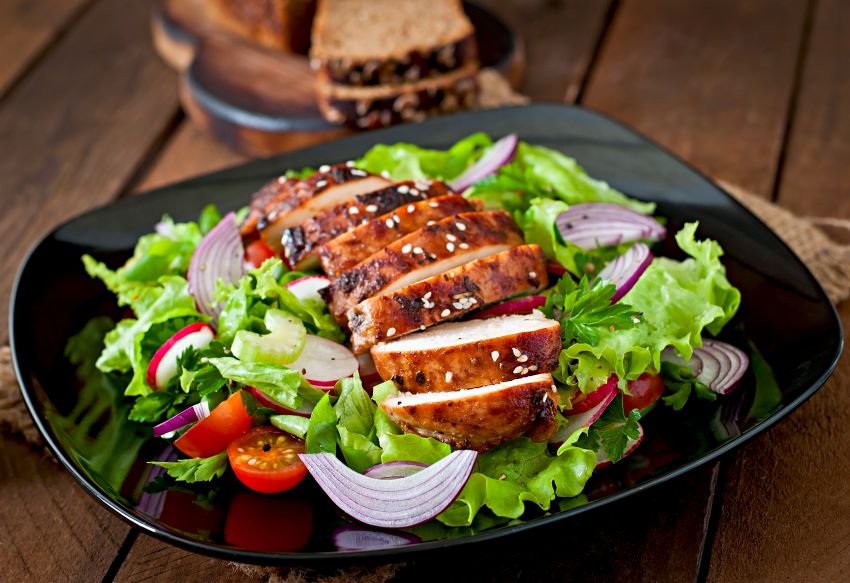Published on
October 9, 2025

Jiangxi province’s Jingdezhen has long been known for its ceramic and porcelain craftsmanship. However, the city discovered a new, unexpected fame during the recently concluded Mid-Autumn and National Day holidays. The success of street vendor Li Junyong, who is lovingly referred to as “chicken steak brother”, was a major factor in the city’s ascent as a tourist destination. Thousands of people were drawn in by Li’s viral charm, humour, and delicious street food, resulting in a symphony of culinary delight and cultural curiosity that greatly increased the local tourism industry.
The Emergence of “Chicken Steak Brother”
Li Junyong’s street stand, where he skilfully flips juicy chicken steaks in a hot wok, became a must-see for tourists visiting Jingdezhen. What started as a local food stall quickly turned into a tourist attraction, largely due to Li’s wit and engaging personality. His popular catchphrases, such as “You can refuse me, but not my chicken steak” and “You deserve everything beautiful in the world, including my chicken steak”, quickly became viral on social media platforms, including Douyin (Chinese TikTok). These playful interactions not only drew in crowds but also helped Jingdezhen’s tourism reach new heights during one of China’s most celebrated holiday periods.
Impact on Jingdezhen’s Tourism
The impact of Li’s rise to fame on Jingdezhen’s tourism was tangible. Data from Douyin indicated that bookings related to Jingdezhen surged nearly 70 percent during the first three days of the eight-day holiday, running from October 1st to October 8th. Additionally, the growth was not limited to food tourism alone. Group bookings for local experiences such as pottery-making and glass-blowing saw an impressive rise, with year-on-year growth rates of 74 per cent and 71 per cent, respectively. This surge highlights how a small local phenomenon can catalyse significant interest in a broader set of activities within the destination, benefiting the region’s entire tourism ecosystem.
The Role of Local Cuisine in Tourism Growth
Li Junyong’s chicken steak stall is a perfect example of how local cuisine can drive tourism growth. Small cities across China are increasingly leveraging their culinary identity to attract tourists, avoiding the overwhelming crowds of more prominent tourist destinations. Jingdezhen’s case aligns with the growing trend in China where less-crowded destinations with a unique charm—whether cultural, natural, or culinary—are becoming favourites for holidaymakers. According to Qunar, a leading Chinese travel portal, many of its users sought out county-level destinations known for their distinct local experiences, such as Jiuzhaigou in Sichuan and Yangshuo in Guangxi, during the National Day holiday.
Expanding the Scope of Domestic Tourism
This trend towards niche tourism is a clear reflection of China’s evolving domestic travel patterns. While traditional metropolises like Beijing and Xi’an continue to see strong tourism numbers, smaller cities like Jingdezhen have emerged as a growing force. The rise of such destinations is particularly noteworthy because it highlights a shift in Chinese travelers’ preferences toward more authentic and unique experiences. Travellers, eager to avoid the over-touristed attractions, are increasingly seeking out smaller, lesser-known destinations that offer something distinct.
Increased Tourism Demand During Holidays
The success of Jingdezhen’s local tourism sector during the Mid-Autumn and National Day holidays is part of a broader trend observed across the country. Travel data shows that small cities, especially those with strong cultural or culinary traditions, performed particularly well in attracting tourists during public holidays. For example, Qunar’s data showed that over the eight-day vacation, travellers were increasingly booking accommodations in over 2,000 county-level destinations nationwide. Popular spots included regions like Jiuzhaigou, known for its stunning landscapes, and Pingtan, famous for its coastal beauty.
The Need for Sustainable Growth
Despite the short-term success of Li Junyong’s chicken steak phenomenon, tourism experts stress the importance of turning the temporary surge in visitor numbers into long-term growth. Jingdezhen’s authorities have a significant opportunity to capitalise on the newfound interest and further develop the local tourism infrastructure. With its rich cultural heritage in ceramics and porcelain, Jingdezhen already has a solid foundation to build on. However, it is crucial for local government officials to focus on expanding and diversifying the city’s tourism offerings, improving hospitality services, and enhancing accessibility.
Experts have highlighted the need to improve tourism products and services to ensure that the influx of tourists from the holiday period can be converted into sustained visitation. Additionally, there is an opportunity for the city to better market its unique ceramic history and offer year-round experiences that can complement the viral appeal of street food and local cuisine.
Challenges and Opportunities for Local Authorities
The Jingdezhen experience serves as a prime example of how smaller cities can harness viral moments to drive tourism growth. However, it also emphasises the challenges of transforming fleeting, seasonal surges into sustainable economic benefits. Li Junyong’s chicken steak stand may have been a catalyst, but it will be crucial for the local government to maintain the momentum by enhancing tourism offerings, promoting the city’s cultural heritage, and ensuring that local businesses are equipped to handle the increased demand.
Conclusion
The rise of Jingdezhen as a popular travel destination during the Mid-Autumn and National Day holidays highlights how smaller cities are becoming more and more popular in China’s varied travel market. The success of “chicken steak brother” demonstrates how a peculiar local phenomenon can spur substantial economic expansion and tourism interest, giving underappreciated areas with rich cultural histories a much-needed boost. It will be essential going forward for local authorities to take advantage of this chance and turn this brief viral success into a long-term plan for the growth of sustainable tourism.







